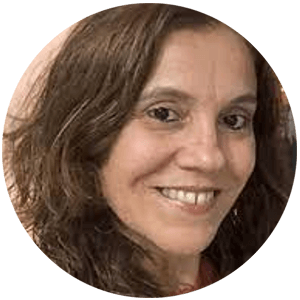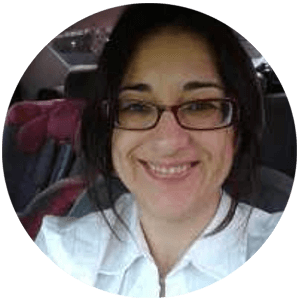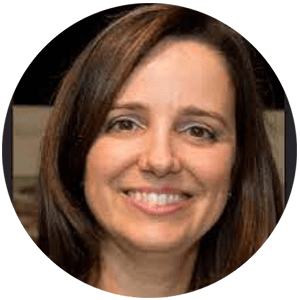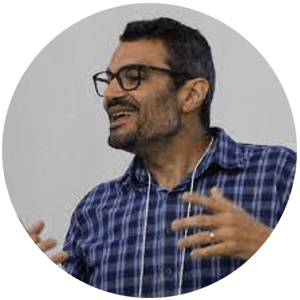Information about researchers already confirmed for the School.

Meet the Speakers
National and international expertise in lectures, activities, and events with profound pedagogical impact and unique networking opportunities. Below is a brief biography of the participants.
International Lecturers

Majeti N.V. Prasad
Prof. Dr. Majeti N.V. Prasad is a retired Professor from the Department of Plant Sciences at the School of Life Sciences, University of Hyderabad, India. He holds a Bachelor’s degree in Botany, a Master’s degree, and a Ph.D. in Plant Sciences from the same university. He has held various academic positions throughout his career, including Dean of the School of Life Sciences, Head of the Department of Plant Sciences, Coordinator of the Biotechnology Program, and Coordinator of the PG Diploma in Environmental Education and Management. Throughout his professional career, he has made significant contributions to the field of plant-metal interactions, bioremediation, and bioeconomy. He has authored 228 research articles in peer-reviewed journals, 180 book chapters, and edited 44 books published by renowned publishers such as Elsevier, Wiley, Springer, and CRC Press. Professor Prasad has received global recognition for his work and has been ranked among the top 2% of scientists in the world in Environmental Sciences for four consecutive years (2020-2023) based on data compiled by Stanford University, Elsevier, and SciTech Strategies. He has been honored with prestigious awards and fellowships, including the Excellent Scholar Award at the XIX International Botanical Congress, the National Environment Fellow award from the Ministry of Environment, Forests, and Climate Change, the Prof. KS Bilgrami award from the Society for Plant Research, and served as a member of the working group for COST action 859 (Phytotechnology) by the ESF. He is an elected Fellow of the Linnean Society of London and the National Institute of Ecology, New Delhi. Professor Prasad has also undertaken visiting assignments at universities in various countries and has a strong academic impact, with an H-index of 48 in Web of Science and 58 in Scopus, with thousands of citations in both databases.

Frederic Leusch
Dr Frederic Leusch is Professor in the School of Environment and Science at Griffith University (Australia), where he teaches biology and environmental toxicology. He is also Deputy Director of the Australian Rivers Institute, and his current research focuses on assessing the impact of environmental contaminants on humans and aquatic ecosystems. Fred has published more than 150 peer-reviewed scientific papers, and his work has been cited more than 9000 times. He is Associate Editor for the journal Environmental Science & Technology and serves on various national and international committees on issues related trace organic pollutants and drinking and recycled water quality.
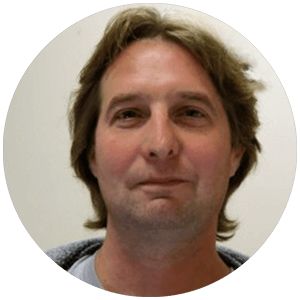
John W. Scott
John Scott has been at the Illinois Sustainable Technology Center (ISTC) since 2001 and is a senior analytical chemist in the Applied Research on Industrial and Environmental Systems (ARIES) group at ISTC. His current research interests include emerging pollutants in environmental media, production of bio-fuels and bio-products from non-edible sources, and utilization of waste biomass. John has ten years of experience preparing and analyzing samples for inorganic and organic analysis.
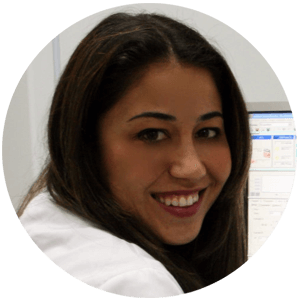
Julia Martin Bueno
Prof. Dr. Julia Martin Bueno is an Associate Professor at the Department of Analytical Chemistry, Higher Technical School, University of Seville, Spain, completed her undergraduate studies in chemistry, as well as her master’s and doctoral degrees at the same university. She conducted internships at renowned centers such as the University of Linz (Austria), University of Toledo (USA), and the Helmholtz Centre for Environmental Research (Germany), during and after her doctoral studies. She has a special interest in developing new methodologies for determining emerging contaminants in environmental and biological matrices. Her work focuses on the impact of microplastics as contaminants and sources of emerging contaminants in soils and crops treated with wastewater and sewage sludge from wastewater treatment plants, as well as on metabolites and enantiomers of antibiotics in major environmental contamination sources: wastewater and sewage sludge from wastewater treatment plants, assessing their ecotoxicological and health risks. In 2014, she was recognized with the National Award for Environmental Research and Development and Sustainability.
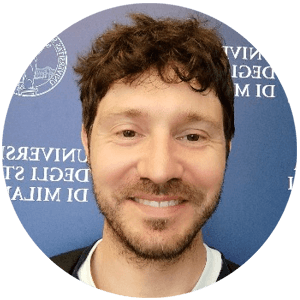
Marco Parolini
Prof. Dr. Marco Parolini is an Associate Professor in Ecology at the Department of Environmental Science and Policy at the University of Milan, is actively engaged in researching the ecotoxicity of nanoplastics and microplastics in marine organisms. His academic journey includes undergraduate, master’s, and doctoral degrees from the University of Milan, supplemented by postdoctoral research on psychotropic substances as new contaminants and a visiting researcher role at the Irish Centre for Environmental Toxicology in Ireland. With a focus on ecotoxicology, his work involves monitoring legacy and emerging contaminants across various environmental matrices in terrestrial and aquatic ecosystems, encompassing both biotic and abiotic components. Additionally, he contributes to the development of innovative strategies for plastic waste reuse and conducts active and passive biomonitoring to assess contamination levels in freshwater and marine environments, using specific biomarkers on appropriate biological models. Furthermore, he evaluates the potential toxicity of contaminants like pharmaceutical and personal care products, drugs of abuse, and micro(nano)plastics on different biological models under controlled laboratory conditions. He employs in-vitro methodologies, including the application of biomarkers on cultured cells, as a screening tool for assessing xenobiotics’ toxicity. Marco also utilizes ‘OMICs’ techniques such as proteomics, lipidomics, and transcriptomics to analyze molecular changes induced by environmental contaminants. His extensive research contributions include investigating the ecotoxicity of nanoplastics and microplastics in marine organisms. Marco’s scholarly impact is evidenced by over 150 scientific articles with more than 4400 citations, along with his involvement in 13 funded research projects.
Brazilian Lecturers
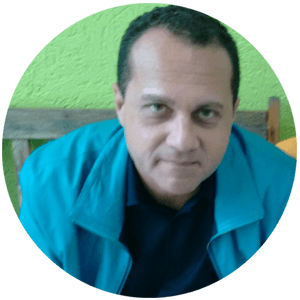
Fernando Barbosa Junior
Prof. PhD. Fernando Barbosa Junior is Full Professor at the Faculty of Pharmaceutical Sciences of University of São Paul (USP). He holds a PhD in Analytical Chemistry at USP, with a sandwich PhD period at the New York State Department of Health. He also earned a Master’s in Analytical Chemistry from the University of São Paulo after his undergraduate studies in Chemistry at the University of Brasília. He was a visiting professor at the University of Central Florida (2019 to 2020) and currently serves as an associate editor of the journals Ecotoxicology and Environmental Safety and Journal of Toxicology and Environmental Health part B. He is also a member of the Editorial Board of the Journal of Toxicology and Environmental Health part A. He is actively engaged in academic and research activities, contributing significantly to areas such as Metals and Emerging Pollutants in Health and the Environment and Systems Toxicology and Human Biomonitoring. He is a pioneer in some of these areas in the country and has authored or co-authored over 410 international publications (total of 10,840 citations in Scopus). His recent research works have received several awards, including the USP Outstanding Thesis, CAPES Thesis, Santander Thesis Recognition, Science and Technology Incentive Award for SUS, and a medal from the Military Police of the State of São Paulo. The latter was in recognition of his work with rescue firefighters in Brumadinho-MG. He is included in the list of the top 100,000 most influential researchers globally and among the top 100 most cited researchers in Brazil in 2019 (Source: Plos Biology 2020). He is a co-author of a reference book edited by the World Health Organization on mercury exposure and its effects on children. He has delivered numerous conferences, lectures, courses, and seminars at Brazilian institutions and abroad (USA, Cuba, Scotland, France, Portugal, among others). He has served as President, Coordinator of Scientific Committees, or Member of Scientific Committees for various congresses in Brazil and abroad (CIFARP 2009, CBTOX 2011, IBAMTOX 2009, 2011, and 2016, IMETHOX 2016, ENCI 2013, ICOETOX 2018). He has close collaboration with over 30 research groups abroad with groups at the New York State Department of Health, State University of New York-Albany, University of Central Florida, New York University in the USA, and the University of Pau, France. He coordinates numerous large-scale projects in Brazil (Fapesp ReSEARCH Thematic Project, INCT-Exposoma, among others) and abroad (H2020-MSCA-RISE-2020-European Union, among others). He was the coordinator of the Graduate Program in Toxicology (FCFRP-USP) and President of the Graduate Committee of FCFRP-USP (2014-2018). He served as Vice-President of the Brazilian Society of Toxicology. He supervised the research project of 19 Post-Doctoral fellows and advised 17 Ph.D., 22 Master’s, and 5 undergraduate students since 2006.
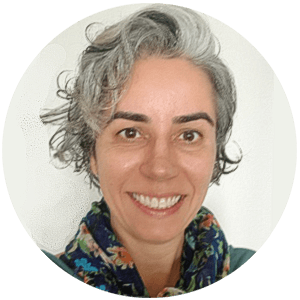
Geórgia
Labuto
Prof. PhD. Geórgia Labuto is an Associate Professor of Analytical Chemistry at the Chemistry Department of Federal University of São Paulo since 2010, previously serving as a professor at the University of São Paulo from 2007 to 2010. She holds a degree in Chemistry from the Federal University of Espírito Santo and completed her Master’s and Ph.D. in Chemistry at the Federal University of São Carlos and the Embrapa Pecuária Sudeste, including a sandwich Ph.D. program at the University of Coimbra. Her academic journey includes postdoctoral research at the Center for Nuclear Energy in Agriculture at USP in 2005, and a sabbatical at Universidade Nova de Lisboa from 2019 to 2020. PhD. Labuto’s research is primarily focused on water security, aligning with the UN’s sustainable development goals. Her work involves predicting and prioritizing drugs, developing adsorbent materials to remove pollutants from water, and integrating principles of bioeconomy, circular economy, and green chemistry. She has supervised 44 studies for undergraduate and postgraduate students and currently oversees 15 students while coordinating multiple research projects. Additionally, she leads the HydroPoll Network (https://www.hydropoll.org/), the Chemical Speciation Center at Unifesp (NESPEQUI, https://nespequi.unifesp.br/) and the Laboratory of Integrated Sciences (LabInSciences, https://sites.google.com/view/labinsciences-unifesp/). She also serves as an associate researcher at the Antimicrobial Resistance Institute of São Paulo (CEPID ARIES, https://site.unifesp.br/cepidaries/). She is member of the Global Health Center (https://saudeglobal.unifesp.br/).

Cassiana Carolina Montagner
Prof. PhD. Cassiana Carolina Montagner is a professor and researcher at the Department of Analytical Chemistry at the Institute of Chemistry, University of Campinas (IQ-UNICAMP). She has been the Coordinator of the Environmental Chemistry Laboratory (LQA-IQ-UNICAMP) since 2014, where she supervises undergraduate and postgraduate students. She served as the Director of the Environmental Chemistry Division at the Brazilian Chemical Society (2018-2020). She is an Associate Researcher at the National Institute of Advanced Analytical Sciences and Technologies (INCTAA). She leads the FAPESP PLAST-AGROTOX Thematic Project (2022/12104-4). She is an Associate Editor of Química Nova and currently serves as the Undergraduate Coordinator at IQ-UNICAMP. She obtained her Livre Docente degree from IQ-UNICAMP in 2021. Her academic background includes a Bachelor’s degree in Chemistry (IQ-UNICAMP – 2004), a Master’s degree in Analytical Chemistry (IQ-UNICAMP – 2007), and a Ph.D. in Sciences (IQ-UNICAMP – 2011). She completed postdoctoral studies in Aquatic Ecotoxicology at the Faculty of Technology (FT-UNICAMP) (2012-2014) and in Water Reuse Technologies at the University of South Carolina, USA (2017). Her research focuses on Environmental Chemistry, with an emphasis on Water Security and the occurrence, fate, and impacts of emerging contaminants, microplastics, and pesticides in aquatic and terrestrial systems. This includes the development and validation of analytical methods for the determination of these contaminants at trace levels.
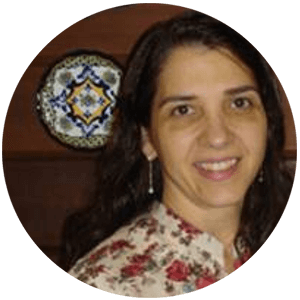
Juliana Calabria de Araújo
Prof. PhD. Juliana Calabria de Araújo is an Associate Professor at Federal University of Minas Gerais (Brazil) specializing in Applied Microbiology to Sanitary Engineering. She earned her Bachelor’s degree in Biology from the Federal University of Rio de Janeiro, followed by a Master’s and Ph.D. from the University of São Paulo (USP/EESC) in Hydraulic Engineering and Sanitation, with a sandwich period at EAWAG, Switzerland. She completed postdoctorals studies in the Department of Microbiology at USP and at the Federal University of Minas Gerais. She has been a visiting professor and post-doc at the University of Toronto. Her research involves the identification and quantification of microorganisms and pathogens (antibiotic-resistant bacteria, enteric viruses, SARS-CoV2) in water, sewage, effluents, sludge, and waste samples. She works on anaerobic digestion and biodegradation of pollutants, anaerobic sewage treatment, and nitrogen removal from effluents using the Anammox process. Her areas of expertise include microbial molecular ecology, sewage-based epidemiology, anaerobic biofilms, methanogenic archaea, microbial physiology, nitrogen removal, and nutrient removal and recovery from effluents. She employs molecular techniques (next-generation sequencing, metagenomics, among others) for microbial identification and quantification in environmental samples (water and soil) and biological reactors (sludge and effluents). She cultivates anaerobic microorganisms such as anammox bacteria, methanotrophic bacteria, denitrifying methanotrophic bacteria, phototrophic bacteria, etc., for their application in effluent post-treatment. She served as the coordinator of the Postgraduate Program in Sanitation, Environment, and Water Resources (SMARH) at UFMG.
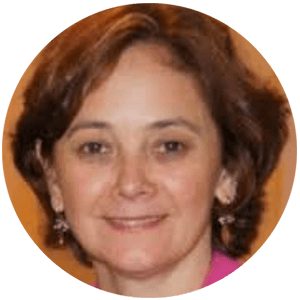
Adelaide Cassia Nardocci
Prof. PhD. Adelaide Cassia Nardocci holds a Bachelor’s degree in Physics from the State University of Londrina (1987), a Master’s degree in Nuclear Engineering from the Coordination of Postgraduate Programs in Engineering (COPPE/UFRJ) (1990), and a Ph.D. in Public Health from the University of São Paulo (1999). She completed a postdoctoral fellowship at the University of Bologna (2008) and received her Livre-docência from USP (2010). Currently, she is an Associate Professor III at the Department of Environmental Health, Faculty of Public Health, University of São Paulo. Her current research activities focus on quantitative methods for assessing exposure and health risks associated with environmental agents; environmental health surveillance; spatial analysis of health and environmental data; health impacts of extreme events; environmental risk governance; resilience and adaptation to climate change. She is the coordinator of the Environmental Risk Assessment Research Center at USP (NARA) and a member of CEPED/USP. She participates in various research projects in collaboration with colleagues from USP, Brazilian institutions, and international partners.

Fernando Fabriz Sodré
Prof. PhD. Fernando Fabriz Sodré holds a Ph.D. in Chemistry from the Federal University of Paraná, a Master’s degree in Chemistry from the State University of Maringá, and a Bachelor’s degree in Chemistry from the State University of Londrina. He is an Associate Professor IV at the Institute of Chemistry, University of Brasília (UnB), teaching courses in Chemistry and Environmental Sciences. He is a member of the National Institute of Advanced Analytical Sciences and Technologies (INCTAA), the Brazilian Chemical Society (SBQ), and its Environmental Chemistry Division. He coordinates/participates in projects and mentors’ students on topics such as (i) Sewage-based epidemiology for illicit drugs, pharmaceuticals, and pathogens, (ii) Emerging and persistent micropollutants, (iii) Metals and rare earth elements, (iv) Microplastics, (v) Chemistry of soils, waters, and the atmosphere. He leads the Cloacina Project in partnership with the Federal Police, National Secretariat for Drug Policy and Asset Management, universities, research centers, and sanitation companies to monitor population exposure to drugs of abuse through sewage analysis.
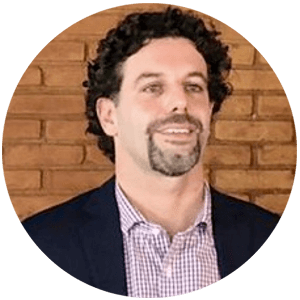
Camilo Dias Seabra Pereira
Prof. PhD. Camilo Dias Seabra Pereira holds a Bachelor’s degree in Biological Sciences with a focus on Marine Biology from Santa Cecilia University (1998), a Master’s degree in Oceanography (Biological Oceanography) from the University of São Paulo (2004), a Ph.D. in Oceanography (Biological Oceanography) from the University of São Paulo (2008), and a Postdoctoral fellowship (Biological Oceanography) at the Department of Physics and Chemistry, University of Cádiz – Spain (2009). Currently, he is an Associate Professor at the Department of Marine Sciences, Federal University of São Paulo – Institute of the Sea – Baixada Santista Campus. He is a Permanent Professor in the Interdisciplinary Graduate Programs in Marine Sciences and Technology (UNIFESP), Integrated Environmental Analysis (UNIFESP), and Environmental Science and Technology (UNISANTA). He is a Collaborating Professor in the Biodiversity of Coastal Environments Graduate Program (UNESP – Coastal São Paulo Campus). Additionally, he is a member of the HydroPoll Network (https://www.hydropoll.org/) and a researcher at the Antimicrobial Resistance Institute of São Paulo (CEPID ARIES, https://site.unifesp.br/cepidaries/).

Décio
Semensatto
Prof. PhD. Décio Semensatto is a Bachelor in Ecology and holds a Ph.D. in Geosciences and Environment, both from São Paulo State University (UNESP). He completed a postdoctoral fellowship at the University of Lisbon, Portugal. Currently, he is an Associate Professor at the Federal University of São Paulo (Unifesp), Diadema campus, specializing in Environmental Sciences and affiliated with the Laboratory of Integrated Sciences (LabInSciences). He has held various leadership roles within academia, including serving as president of the Brazilian Ecologists Association (ABE) and coordinating programs such as the Inter-Unit Program of Postgraduate Studies in Integrated Environmental Analysis at Unifesp. His research focuses on areas such as microplastic pollution, water quality, community ecology, and water resource management. Additionally, he is a member of the Brazilian Society for the Advancement of Science (SBPC) and actively participates in the HydroPoll Network and the Antimicrobial Resistance Institute of São Paulo (CEPID ARIES) and in the Global Health Center (https://saudeglobal.unifesp.br/).

José Carlos de Oliveira
Prof. PhD. José Carlos de Oliveira is a professor at the Faculty of Humanities and Social Sciences (FCHS) at São Paulo State University (Unesp). He graduated in Law from the Pontifical Catholic University of Campinas – PUCCAMP (1983); Master of Laws (1992) and Ph.D. in Law (1995) from São Paulo State University – UNESP. Post-doctorate at the University of Coimbra (2014). He is a professor in the Postgraduate Program in Law (FCHS/UNESP) offering Doctorate, Master’s, and Specialization degrees. In the undergraduate Law program, he is associated with the Department of Public Law. He served as Head of the Department of Public Law (1996/1998 – 2008/2010) and Coordinator of the Law Course at FCHS/UNESP (2014-2016 and 2016-2018). In the Postgraduate Program in Law (FCHS-UNESP), he is linked to the research line: Regulatory Administrative Law and the assumptions for citizenship in sectoral public policies (water resources, basic sanitation, solid waste). In the Professional Master’s Program in National Network Management and Regulation of Water Resources (FEIS – ProfÁgua – UNESP), he is linked to the Concentration Area of Regulation and Governance of Water Resources. He is a lecturer and organizer of the Distance Learning Course in Public Bidding and Contracting at NEaD/Unesp. He organizes courses such as Regulation in Brazil and Worldwide; Fundamentals of Governance and Good Practices in Regulation; Fundamentals of Regulatory Theory and Principles of Technical Regulation. These courses are sponsored by ANA – National Water Agency, IDB – Inter-American Development Bank, and ABAR – Brazilian Association of Regulatory Agencies, and are available on the ENAP – National School of Public Administration platform. He is a researcher at the Center for Regulation and Governance of Public Services.
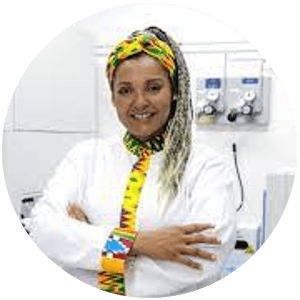
Erica Aparecida Souza Silva
Prof. PhD. Erica Aparecida Souza Silva holds a Bachelor’s degree in Chemistry from the Institute of Chemistry of São Carlos (USP) and a Master’s degree from the same institution. She earned her Ph.D. in Sciences from the University of Waterloo (Canada) under the guidance of Prof. Janusz Pawliszyn, where she also served as the manager of the Gas Chromatography section at the Analytical Unit with a focus on Industrial Research Laboratory (InFAReL). She completed her Postdoctoral studies at the Institute of Chemistry at UFRGS, specializing in Analytical Chemistry (GCxGC Instrumentation). In 2023, she conducted a 12-month Postdoctoral research at Universidad San Pablo-CEU in Madrid, Spain, at the Center for Metabolomics and Bioanalysis (CEMBIO) as a Marie Sklodowska-Curie Actions (MSCA) fellow under the supervision of Prof. Coral Barbas, working on the project titled “Broadening the coverage of metabolites in faeces through advanced analytical technologies (FaecMet).” She currently works as an Associate Professor in the Department of Chemistry at the Federal University of São Paulo (UNIFESP) (Diadema campus). Her research focuses on the development of extraction devices and data processing applied to analyses of complex matrices (biological, food, and environmental), involving the use of separation techniques coupled with mass spectrometry. Using these techniques, she also works in the field of clinical metabolomics, specifically studying intestinal microbiota. She has authored over 30 peer-reviewed publications, including the development of a biocompatible SPME device for analyzing complex matrices by gas chromatography (currently commercialized by Supelco). In 2019 and 2021, she was ranked among the top 2% scientists in the world by Stanford University (based on citations from 2019 and 2021).
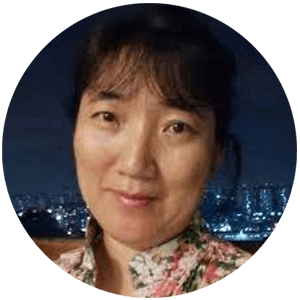
Maria Yumiko Tominaga
PhD. Maria Yumiko Tominaga is the manager of the Physical-Chemical Analysis Division at CETESB (Environmental Sanitation Technology Company of São Paulo state), where she has been working since 1992. She holds a Bachelor’s degree in Pharmacy and Biochemistry from the University of São Paulo, a Master’s degree in Pharmacy with a specialization in Toxicology and Toxicological Analysis, and a Ph.D. in Sciences with a focus on Analytical Chemistry from the University of São Paulo. With extensive experience in Environmental Chemistry, she specializes in managing chemical analyses of various environmental matrices within the environmental monitoring network of the State of São Paulo. Her work emphasizes the analysis of organic pollutants, laboratory quality control, and the development of analytical methodologies for environmental matrices such as treated water, raw water, wastewater, soil, sediment, and solid waste.
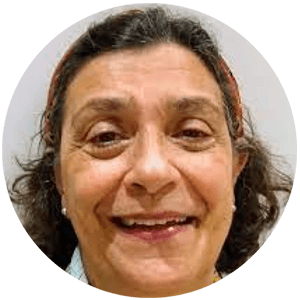
Maria Inês Zanoli Sato
PhD. Maria Inês Zanoli Sato is currently the Manager of the Environmental Analysis Department at CETESB (Environmental Sanitation Technology Company of São Paulo state). She holds a Bachelor’s degree in Medical Biological Sciences from the Federal University of São Paulo (1977), a Master’s degree in Microbiology and Immunology from the Federal University of São Paulo (1986), and a Ph.D. in Sciences (Microbiology) from the University of São Paulo (1995). She completed specializations at the Environmental Protection Agency (USEPA), University of California (Irvine), University of Florida (Gainesville), and University of Pretoria (South Africa). With 40 years of experience at CETESB, she has worked in analytical areas, laboratory management, and coordinated research projects. Her expertise encompasses Microbiology, Parasitology, Environmental Mutagenesis, and Analytical Laboratory Quality Control. She is a guest lecturer at specialization and postgraduate courses at Faculdade Álvares Penteado, Faculdade de Saúde Pública (USP), UNESP, among others. Additionally, she has published 101 scientific articles and coordinated 11 research grants funded by the São Paulo Research Foundation (FAPESP).

Reginaldo Antônio Bertolo
Prof. PhD. Reginaldo Antônio Bertolo coursed Geology at the University of São Paulo, obtained a Master’s degree in Geosciences, and a Ph.D. in Hydrogeology from the same institution. He is an Associate Professor at the Institute of Geosciences (USP), a researcher at the Center for Groundwater Research (CEPAS-USP), and the coordinator of the Graduate Program in Geosciences (Mineral Resources and Hydrogeology) at IGc-USP. He is a member of the Technical Chamber of Groundwater of the High Tietê Basin Committee (CTAS CBHAT) and a member of the academic committee of the Nicole Latin America Network. His areas of interest include groundwater geochemistry, aquifer pollution, and contaminated area management. He coordinates research projects on pollution of fractured aquifers by chlorinated solvents, geochemistry of urban aquifer contamination by nitrogen, aquifer pollution by metals and emerging contaminants, and management of complex contaminated areas. Among these, the project entitled “Occurrence of per- and polyfluoroalkyl substances (PFAS) in groundwater contaminated by domestic effluents” stands out.
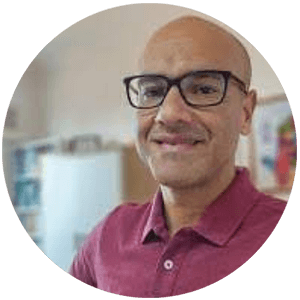
Vinícius Roveri
Prof. PhD. Vinícius Roveri is currently conducting Postdoctoral research at CIIMAR – Centro de Investigação Marinha e Ambiental (research and advanced training institution of the University of Porto/Portugal), focusing on “Ecological Risk of Emerging Contaminants (pharmaceutical compounds).” He holds a Postdoctoral degree in “Information and Communication Technologies (ICT), applied to environmental education” from the Faculty of Science and Technology of the Fernando Pessoa University (FCT-UFP) in Porto, Portugal (2023). He obtained his Ph.D. in Ecology and Environmental Health, also from FCT-UFP, Porto, Portugal (2021), with the degree recognized in Brazil by the Postgraduate Program in Ecology of the Federal University of Rio Grande do Sul. He earned a Master’s degree in Ecology from the Postgraduate Program in Sustainability of Coastal and Marine Ecosystems (UNISANTA) (2013). In the environmental field, he also has a specialization in: (i) Environmental Management from CEUCLAR (2006); (ii) Environmental Education from UCAM (2008), and (iii) Environmental Law from FACINTER (2009). In the field of education, he holds specializations in: (i) Teaching in Higher Education from UNAERP (2011); (ii) Distance Education (2018) and (iii) Technologies for Online Learning Management (2019), both from UNIMES, and (iv) Management, Teaching, and Technologies in Higher Education, from UNIBR (2021). He graduated in Environmental Technology from the São Judas University Center (2005) and is currently pursuing a degree in Data Science at the Faculty of Informatics and Business Administration of São Paulo (FIAP) (2024). Since 2007, he has been working as Coordinator and Professor in Undergraduate courses (face-to-face and distance learning) at UNIMES, in addition to being a Permanent Professor of the Postgraduate Program (PPG CITA – Master’s and Ph.D.) in Environmental Science and Technology at UNISANTA (2021).

